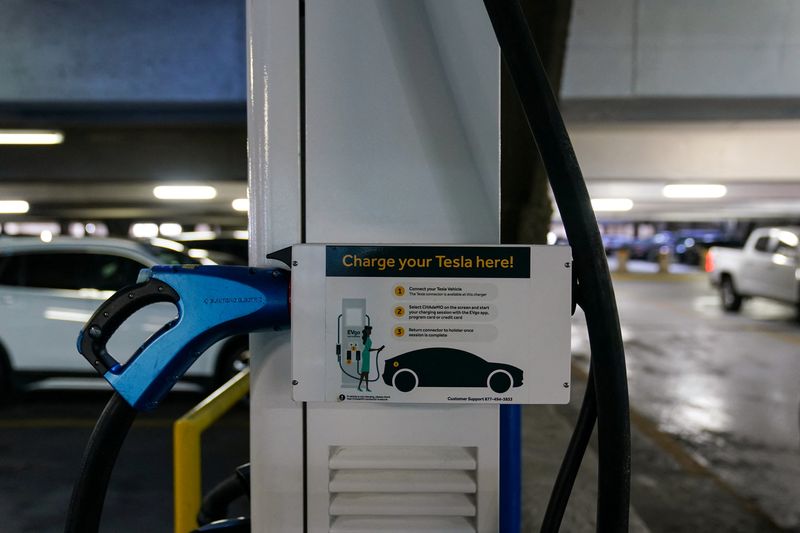US senators seek to reverse ‘Buy America’ waiver for EV charging stations
2023.07.26 20:29

© Reuters. An electric car charging station is seen in the parking garage of Union Station in Washington, U.S., September 29, 2022. REUTERS/Sarah Silbiger
By David Shepardson
WASHINGTON (Reuters) – Four Republican U.S. senators on Wednesday sought to reverse a Biden administration decision to waive “Buy America” requirements for government-funded electric vehicle (EV) charging stations.
Senators Marco Rubio, Roger Marshall, Rick Scott and Kevin Cramer said the Federal Highway Administration waiver of U.S. content requirements for steel, iron and construction materials would result in U.S. taxpayers subsidizing Chinese-made products. “It hurts American companies and empowers foreign adversaries, like China, to control our energy infrastructure,” Rubio said.
The agency did not immediately issue a comment. It said in February that the short-term waiver would enable “EV charger acquisition and installation to immediately proceed.”
Congress has set aside $7.5 billion to fund electric vehicle charging stations.
Under the 2021 bipartisan infrastructure law, federal infrastructure projects like EV chargers must obtain at least 55% of construction materials, including iron and steel, from domestic sources and be totally manufactured in the United States.
The rules adopted in February do not start imposing the 55% requirement until July 2024. The chargers must be assembled at a U.S. factory.
EV chargers require iron and steel for some of their most crucial parts, including the internal structural frame, heating and cooling fans and the power transformer. Chargers with cabinets that house the product require even more steel, making up to 50% of the total cost of the chargers in some cases.
U.S. states and companies had warned that global demand for EV chargers is straining the supply chain, making it difficult, if not impossible, to meet made-in-America standards and expedite construction of new chargers.
The Kansas Department of Transportation told the Biden administration earlier this year capacity was insufficient to fill the rapidly expanding need for EV chargers, noting that wait times for some electrical components ranged from 60-80 weeks, without considering the increased demand created by new federal funding.








